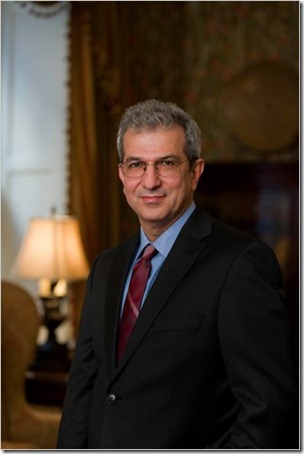 A year after settling a lawsuit brought by the State of New Jersey, Stevens Institute of Technology announced Tuesday that it had named Nariman Farvardin, the provost at the University of Maryland1, to be its seventh president.
A year after settling a lawsuit brought by the State of New Jersey, Stevens Institute of Technology announced Tuesday that it had named Nariman Farvardin, the provost at the University of Maryland1, to be its seventh president.
The appointment could help Stevens turn the corner on an embarrassing period in which its former president’s salary and the financial stewardship of the college, in Hoboken, N.J., came under harsh scrutiny2.
A civil suit filed in late 2009 by the state attorney general questioned the $1.1 million salary of Harold J. Raveché, the president at the time, and accused the college of maintaining different sets of books to conceal its shaky fiscal state. The suit also said the school had given Dr. Raveché $1.8 million in illegal low-interest loans for vacation homes, half of which were later forgiven.
“We’re looking forward to moving ahead,” said Lawrence T. Babbio Jr., the institute’s board chairman, who retained his position for three years under the settlement. “It’s going to help us reach another plateau. I think we closed the financial chapter a long time ago. Some of the issues raised by the attorney general were very old. We’re running a very good surplus right now.”
In a statement, the school’s general counsel, Kathy L. Schulz, said, “The consent judgment disposed of all allegations of the New Jersey attorney general and imposed a limited number of governance and other requirements on Stevens.”
Dr. Farvardin, 54, who was born in Iran, has spent the past 27 years at the University of Maryland, where he served as dean of the school of engineering before becoming provost. He helped direct the university’s 10-year strategic plan, increased financing for research to its highest level and bolstered fund-raising, helping to win two $30 million gifts, the largest in the university’s history.
At Stevens, Dr. Farvardin will start in July and will receive a base salary of $625,000. In a statement accompanying his appointment, the institute took the unusual step of explaining how it arrived at Dr. Farvardin’s compensation, and said his salary was “within market data parameters.”
In an interview, Dr. Farvardin, who has a five-year contract with Stevens, said he hoped to position the college to address some of the most pressing problems confronting the world, like climate change3, cybersecurity and the energy crisis. Stevens, he said, “has the ability and the responsibility to marshal its intellectual resources to understand these big problems” and devise solutions.
He said he also wanted to devote more energy to fund-raising, faculty recruitment and, possibly, a strategic plan for the school, which has 5,950 undergraduates and graduate students.
As part of the settlement reached with the state last January, Stevens agreed to changes that tightened oversight of its financial management.
The settlement dropped many demands in the New Jersey lawsuit, including a call for the removal of Mr. Babbio as board chairman. But Dr. Raveché, who will be compensated as a consultant through October, must repay the approximately $750,000 balance on the mortgages by then as well.
